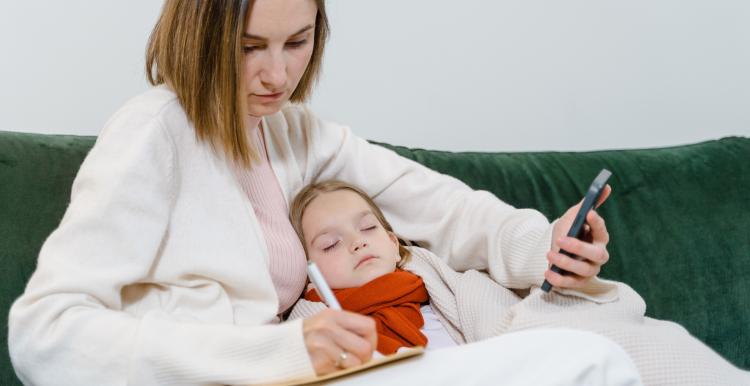Parents and carers voice their concerns about accessing GP Practices

Our new Accessing GP Services: Views from Hertfordshire’s Parents and Carers Report found that these delays and, in some cases, a lack of face-to-face appointments has led some parents to avoid GP services or contact them only when their child is very unwell - which is concerning.
Local NHS leaders have responded to our Report saying they are committed to improving access to services and addressing the concerns raised by parents and carers of children and young people. Initiatives include equipping GP services with new telephony systems and increasing online booking availability.
Why did we do this research?
In late 2022 the Hertfordshire and West Essex ICB Primary Care Board (ICB) asked Healthwatch Hertfordshire to gather patient feedback about access to GP services, because they wanted to hear from patients and address their concerns.
Specifically, the ICB wanted to hear from particular groups of people. Parents and carers of children and young people were some of the first to be surveyed, with additional sectors to follow.
From August to October 2022, we heard from more than 230 parents and carers across Hertfordshire who provided a range of positive and negative feedback about their experiences.
What did people tell us?
- 49% of parents/carers said they had avoided contacting the GP about their child in the past 12 months. Instead, 80% had looked for information and advice elsewhere – such as online, a local pharmacy, contacting NHS 111 and accessing private GPs.
- In some cases, not receiving a face-to-face appointment led to a child being misdiagnosed and/or receiving inappropriate treatment for their condition or symptoms.
- Parents told us they would try to use various routes to access their GP and get medical help. Only once they had exhausted all these other options, would they take them to A&E if they still felt the child’s condition was serious and there were no other options.
- Some parents/carers tried to make an appointment but were immediately told no appointments were available – even for weeks in advance.
- Some respondents found it difficult to contact the GP practice due to their own work or caring responsibilities, which prevented them being able to call for an appointment during the typical early morning slot.
- Other parents/carers reported positive experiences, saying they could make appointments easily - often because there was an online booking system.
What happens now?
It is well recognised that the challenges faced by GP practices across the county are significant. Most of the improvements parents and carers want to see are about the process of making an appointment and easier access to their GP practice, rather than improving the quality of care received.
The ICB has already put into action some of our recommendations including improvements to phone lines, with 95 practices awarded funding to support upgrading their telephone systems, and development of online services for patients.
In the Report we recommended that GPs:
- Enable a variety of access routes, including online services and visiting the GP practice in person, to accommodate all needs and preferences. Continue to improve telephone systems to reduce delays and waiting times for patients.
- Review and address waiting times for appointments, with particular consideration for children and young people; those with a disability, complex needs, or a long-term condition; and those with poor mental health.
- The ICB to work with Primary Care Networks and GP practices to identify ways to provide greater choice for patients and ensure all patients feel respected and heard, particularly parents and carers, to prevent misdiagnosis and/or mistreatment.
- Continue to encourage patients, particularly parents and carers and vulnerable groups, to contact their GP practice if they have concerns about their health.
Our research showed that many parents and carers struggled to access GP services and as children cannot always communicate their symptoms or health needs, a clinical examination in these cases can be important. We welcome the initiatives being undertaken by the ICB to improve access and we will be monitoring these to ensure people’s concerns are addressed and local families consistently receive high-quality care.
Demand for general practice services continues to be high and there are a lot of challenges meeting the needs of all our residents. It is important for the local NHS and practices to view our services through the eyes of our patients and their carers and hear about what matters to them. This survey is just one of the many ways we are working to put the voices of patients front and centre of our work so that we can support practices to implement improvements that could benefit both patients and practice staff. We are grateful to everyone who took part in the survey and took the time to give their views.
Downloads
You can read the full Report here.


